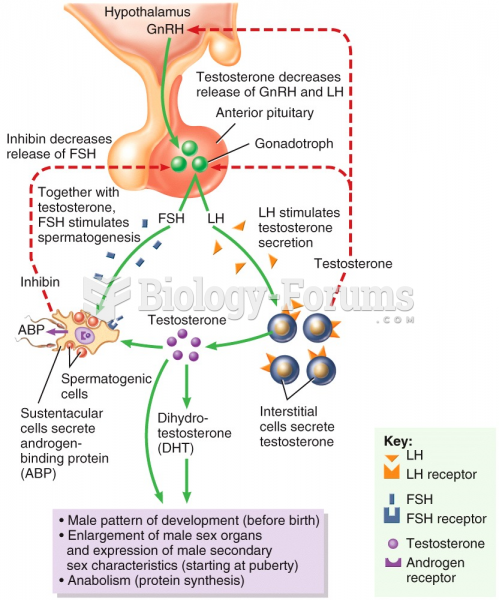Answer to Question 1
A
Feedback
A Correct. The child's growth is monitored regularly after initial treatment (every 3-4 months) and plotted accurately on a standardized growth chart. Bone age and serum hormone levels are monitored to evaluate the response to treatment.
B Incorrect. Bone age and serum hormone levels are monitored to evaluate the response to treatment, not mammography.
C Incorrect. Bone age and serum hormone levels are monitored to evaluate the response to treatment, not cardiac enzymes.
D Incorrect. Bone age and serum hormone levels are monitored to evaluate the response to treatment, not blood sugar.
Answer to Question 2
A
Feedback
A Correct. This is a common practice during the preschool years; it may be a way she releases tension and calms herself so she can fall asleep is the best response the nurse can give to the caregiver asking why her preschooler grinds her teeth at night.
B Incorrect. This is the time when permanent teeth are trying to grow, and the pain causes grinding at night is not the best response the nurse can give to the caregiver asking why her preschooler grinds her teeth at night.
C Incorrect. Loss of baby teeth will cause the mouth to get out of adjustment, and this causes grinding at night is not the best response the nurse can give to the caregiver asking why her preschooler grinds her teeth at night.
D Incorrect. You are probably keeping your child up too late at night and not making sure the child gets a nap is not the best response the nurse can give to the caregiver asking why her preschooler grinds her teeth at night.







